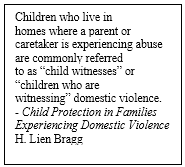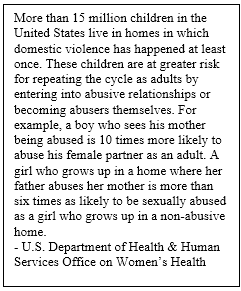Falling
Denise Miller
1 fall /ˈfɑːl/ verb
falls; fell /ˈfɛl/ ; fallen /ˈfɑːlən/ ; falling
(Britannica Dictionary definition of FALL)
1b: to come or go down suddenly from a standing position
At 10, I had gotten used to falling. I was, after all, a tomboy whose wardrobe those summers consisted of any Steelers t-shirt I could find in the pile of clothes on my bedroom floor, a pair of well-worn Wranglers, and the canvas Nikes perpetually dust-caked from the fields, woods, and railroad tracks I’d explore with my sister and the other kids in the neighborhood. Falls, I added a blue satin baseball jacket and tamed my long pigtails under the cover of a baseball cap. In any season, I was dressed to fall, get up, and fall again and again. In those hours between the end of the school day and the first flicker of the streetlight, or between Saturday morning cartoons and my great-grandmother’s “Ya’ll get in here for dinner now!”, I welcomed the falling that followed a long touchdown run. That tumble into the endzone left the knees of my Wranglers grass-stained and my face smeared with sweat and a grin so big I was sure the boys could see it from where they stood after I’d outrun them.
2a: to come down at a particular place after moving through the air
And I would outrun and outride them often. My cousins and I tilted pieces of old 2×4s haphazardly on bricks to serve as ramps. We eyed them as we revved our Huffys’ handlebars the way we saw Evel Knievel do in the middle of the horse track at the county fair one summer just before he soared in the air across that long line of old Chevys. He almost always landed his jumps. We almost always fell.
Living in the Appalachian foothills meant we had long, steep alleys to race up that became asphalt ski slopes to slalom down on our skateboards. “Don’t forget to jump off before you hit the gravel at the bottom!” someone would always yell as one of us started our descent. My great-grandmother always watched us from the wide front window of our trailer until one day when I trampled in after a triumphant ride, she scolded me.
“You better quit that skateboard riding down that alley now before you fall off and hurt your fool-self.”
“But I always jump off in time Gram.”
“I said quit now.”
“Ok, Gram,” I said, knowing full well I would do it again. After all, it was the summer before 3rd grade, the summer of Evel Knievel, and the summer of all the boys still believing I could best them at anything. But the next time I grabbed the orange fiberglass board, mounted the hill, then flew down like a brown feathered bird as fast and as free as I could, I didn’t land triumphantly. I fell instead; knocked myself unconscious and came to screaming, my right arm fractured in two places. When I came home from the emergency room with a clean white plaster cast, my skateboard was gone. My great-grandmother and I never spoke of that moment, and I never mentioned the missing board because she was the only one of the many adults in my sister and I’s life who worked hard to protect us from falling.
Yet the kind of falling I had seen more times than I could count was like the falling of the domino armies I had carefully constructed over and over each week as I sat on the linoleum kitchen floor in my aunt’s house. “Niecy,” my aunt would half scold, half joke. “If you keep spreading those things across the kitchen floor, I’m going to slip on one and drop these pies!” It was probably the only time my legs were motionless in those long, small-town southern Ohio summers made for kickball, big wheels, and running as far and as fast as possible. In fact, there wasn’t a ball, Frisbee, half-full liquor glass, or lit cigarette that I couldn’t catch just short of the ground. But that summer, my right arm in a cast, I often separated those days instead into time for lining up dominos into armies of bodies that with one flick of my finger I would send tumbling head to foot to head to foot until they stumbled into a long line of bodies falling. I knew my aunt, who looked so much like Lena Horne with her stolid husband, would not be one of them.
1a: to come or go down quickly from a high place or position or 9a — used when someone’s body or mind passes from one condition or state to another
The first body I saw fall was my grandmother’s. Nana, a small woman whose skin shone buckeye bark brown, was my father’s mother who weekdays worked as reference librarian in the public library housed in the old judges’ chambers of the Harrison County Courthouse— the second place in my young world that I felt safe. Whether it was sifting through newly returned books or skimming the stacks to stop at shelves filled with Encyclopedia Brown or Nancy Drew, I was drawn to the order of the Dewey Decimal System and the silence broken only by a patron asking “for that book on Willie Nelson” or another seeking “the microfiche containing that newspaper clipping of the time Clark Gable left this, his boyhood home, for the bright lights of Hollywood.” I also loved the laughter. My grandmother’s in particular, since it was the only time I got to hear her joy unbroken and fast as the wind that blew my cheeks back when I booked on my Huffy to beat her mornings to the library’s door. Most times she was already at the entrance, digging to the bottom of her cavernous purse to pluck the key to the library door, but sometimes, I would beat her there and stand ready to wake up the library with a flick of the main light switch when I begged her to let me enter first.
Weekends, she’d often ask me to enter first. When we’d return from the grocery store or bakery to the small yellow house that she shared with my grandfather, she’d hand me her jumble of keys held together on a Smurf keychain and direct: “Unlock the door, see where your grandfather is, and give ‘im his bottle.” Grabbing the gallon jug of whiskey, I’d oblige. While I sifted through the keys searching for the one I needed, I held my breath. Best case scenario? That he worked over at Sickles Garage and so was standing at the kitchen counter smoking a Camel and only opening his first Miller, no juice glass in sight. Worst case scenario? Cans already littered the counter, and his juice glass sat full of Early Times whiskey from a half-empty jug. The latter usually meant that even before my grandmother fully entered the house, he’d grunt, “Maxine, drop me off at the VFW.”
In either case, however, weekends always meant that my alcoholic-on-the-weekend-only grandfather would be on his way to falling. But not before he felled  my grandmother first, regardless of whether Nana had us stay there on the weekends since, “He’ll beat me less if you two are here.” Yet, there were innumerable Friday and Saturday nights my sister and I would lay in the bedroom and listen for my grandfather to snatch open the screen door, take one heavy step onto the linoleum, and heft my grandmother up by the lace of her house dress. I’d hear her yell “No, Leo!” and crack open the bedroom door to witness as he tossed her to the back corner of the hallway just in front of my sister and I’s door. He never paused between the toss and his way to unburden himself. Instead, he’d just huff “Jug whiskey don’t hold easy” into the whoosh of air as he slammed the bathroom door. She said she wanted us to keep her safe, but because the beatings were as consistent as clockwork, I often felt she just wanted a witness.
my grandmother first, regardless of whether Nana had us stay there on the weekends since, “He’ll beat me less if you two are here.” Yet, there were innumerable Friday and Saturday nights my sister and I would lay in the bedroom and listen for my grandfather to snatch open the screen door, take one heavy step onto the linoleum, and heft my grandmother up by the lace of her house dress. I’d hear her yell “No, Leo!” and crack open the bedroom door to witness as he tossed her to the back corner of the hallway just in front of my sister and I’s door. He never paused between the toss and his way to unburden himself. Instead, he’d just huff “Jug whiskey don’t hold easy” into the whoosh of air as he slammed the bathroom door. She said she wanted us to keep her safe, but because the beatings were as consistent as clockwork, I often felt she just wanted a witness.
4a: of a glance or the eyes: to become lowered
During the warm of spring and the hot of summer, our racing continued. We kids kicked balls, battled to beat the throw to base, screamed “Slide!” when we worried the play might be too close to call. It was the 1970s, no instant replay, but we had each other as umpire, as referee, as witness. When someone yelled “Safe!” or “Out!” or “First Down!” we never argued over it. We knew without saying, the fields were the calmest place to position ourselves those days since the times we tried to play Star Trek, Monopoly, or Atari inside one of our houses, our strategies would be shattered when one of our aunts or mothers shrieked, “No, please don’t!” followed by the thump, thump, thump of men’s boots. So, without saying, we trusted our seeing because we knew without saying, that each of us, behind the closed doors of our trailers and houses, shared the shame and shock of being rattled by the violent roar of fathers, uncles, grandfathers, and other grown men.
3d: to become lowered
 On my sister’s wedding day, my grandmother told her, “All men beat their wives,” and until the day of her death she always believed my sister’s husband was no exception. Each time I would come from college to visit, Nana would pull me aside and whisper “James is beating Alicia. I know it, but she wouldn’t tell me if he was.” And though there was never anything to tell, she had grown up with a father who also wielded whiskey and used his hands as weapons against her own mother and her four sons who remained in our hometown followed their father’s fury and flung themselves into their own alcohol and fist-fueled futures. So, these men translated, for her, into all men.
On my sister’s wedding day, my grandmother told her, “All men beat their wives,” and until the day of her death she always believed my sister’s husband was no exception. Each time I would come from college to visit, Nana would pull me aside and whisper “James is beating Alicia. I know it, but she wouldn’t tell me if he was.” And though there was never anything to tell, she had grown up with a father who also wielded whiskey and used his hands as weapons against her own mother and her four sons who remained in our hometown followed their father’s fury and flung themselves into their own alcohol and fist-fueled futures. So, these men translated, for her, into all men.
It wasn’t until last Christmas that my 75-year-old uncle, who long ago when dangerously drunk held his children at gunpoint in a game of Russian Roulette hoping to force my Aunt Kathy not to leave him, told me “Niecy, I didn’t realize that when I drank I didn’t have to get drunk.” He had just stopped drinking a few years before that Christmas, and when that stopped, so did the beatings. But for many of us kids, the falling didn’t end.
fall apart [phrasal verb]
1: to break into parts in usually a sudden and unexpected way
My grandmother stood a sturdy statue against the punches of my grandfather, and my aunts tried to do the same with my grandfather’s sons. These aunts made up the second body I saw fall against fists that sent them falling into walls, down stairs, and onto floors as my sister and I huddled tall to short, oldest to youngest and watched. Most of us neighborhood kids were also raised in families who on-the-clock worked with their hands as coal miners, cooks, and mechanics—all men and women who molded materials to make ends meet. So, for each of us, when the ticking turned morning to 5 pm or Monday to weekend and the men had all week molded materials much less malleable than the mouths of their women and the women had given shape to ingredients much more palatable than the fists of their men, the adults all took to construction. The kind that demands the felling of structures before the rebuilding. The kind that leaves a thick but sinking foundation. So many days of our childhoods, silence gave way to wailing and all our childhood years became a bearing witness to dour aunts, mothers, and grandmothers falling one after another by the flick of a father, grandfather, or uncle’s fist; that meant the third body I saw fall was my own. My uncles, father, grandfather, and many of the other men in my neighborhood felled female bodies with fists while the women felled child bodies with the choreography of their getting back up and their staying—balance fall, balance fall.
 Denise Miller is a professor, poet, and mixed media artist whose poetry has been published in The Offing, African American Review and Blackberry: A Magazine. They were named a Hedgebrook Fellow. Their first full-length poetry collection, Core (Willow Books, 2015), was nominated for a 2016 American Book Award and a 2016 Pushcart Prize. Miller has been named a 2016 William Randolph Hearst Fellow at the American Antiquarian Society. They won the 2020 Sexton Prize for Poetry for their full-length poetry collection A Ligature for Black Bodies, was awarded a 2020 Storyknife Residency, and a 2020 Martha’s Vineyard Institute of Creative Writing Fellowship. Most recently Miller won the 2022 Ruminate Broadside Poetry Prize for “Nocturne in Black Mother Op. 2” and has been awarded a Kimmel Harding Arts Residency in summer 2023 and a Willapa Bay Writer’s Residency in fall 2023. www.denisemiller.studio.
Denise Miller is a professor, poet, and mixed media artist whose poetry has been published in The Offing, African American Review and Blackberry: A Magazine. They were named a Hedgebrook Fellow. Their first full-length poetry collection, Core (Willow Books, 2015), was nominated for a 2016 American Book Award and a 2016 Pushcart Prize. Miller has been named a 2016 William Randolph Hearst Fellow at the American Antiquarian Society. They won the 2020 Sexton Prize for Poetry for their full-length poetry collection A Ligature for Black Bodies, was awarded a 2020 Storyknife Residency, and a 2020 Martha’s Vineyard Institute of Creative Writing Fellowship. Most recently Miller won the 2022 Ruminate Broadside Poetry Prize for “Nocturne in Black Mother Op. 2” and has been awarded a Kimmel Harding Arts Residency in summer 2023 and a Willapa Bay Writer’s Residency in fall 2023. www.denisemiller.studio.
Back to Table of Contents for Parents | Prose Edition
